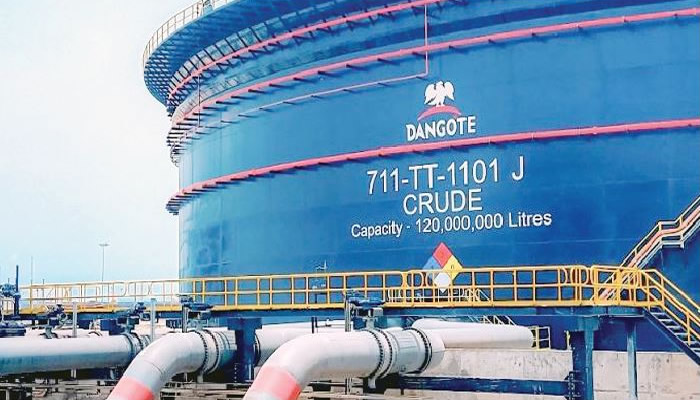KEY POINTS
- Dangote Refinery drops N100bn suit against NMDPRA and NNPC.
- The case challenged import licences issued despite domestic refining output.
- Move seen as an attempt to ease regulatory tensions and stabilise Nigeria’s fuel market.
The Dangote Petroleum Refinery has withdrawn its N100 billion lawsuit against the Nigerian Midstream and Downstream Petroleum Regulatory Authority (NMDPRA) and the Nigerian National Petroleum Company (NNPC) Limited, marking a significant turn in a long-running legal battle over fuel import licences.
The refinery, which filed the suit in September 2024, had accused the NMDPRA of breaching the Petroleum Industry Act (PIA) by issuing fuel import licences despite the commencement of domestic production. Dangote Group argued that the law only allows such licences in cases of product shortages, insisting that granting them under normal conditions undermines Nigeria’s drive for self-sufficiency in refining.
At Wednesday’s hearing in Abuja, counsel for the plaintiff, C. O. Adegbe, informed the court that the company had filed a notice of discontinuance on July 28, following an agreement with all parties to resolve the matter amicably.
Justice Mohammed Umar subsequently struck out the case after acknowledging the submissions of the parties.
The NNPC and five independent oil marketers—AYM Shafa Limited, A. A. Rano Limited, T. Time Petroleum Limited, 2015 Petroleum Limited and Matrix Petroleum Services Limited—were listed as co-defendants in the suit.
Industry Context: Court Battle Ends Amid Shifting Oil Market Dynamics
The withdrawal comes at a time when the domestic energy landscape is undergoing critical changes. The Dangote refinery, which is central to Nigeria’s plans to end fuel importation, has faced pressure to stabilise production and distribution since it began supplying petrol earlier this year.
Analysts see the decision to drop the case as a conciliatory gesture that may ease tensions between the refinery and regulators, potentially paving the way for broader collaboration in managing the country’s refining and import mix.
“The withdrawal is likely a strategic move to mend relations and ensure smoother regulatory engagement,” said a Lagos-based energy lawyer. “A public legal confrontation could have slowed progress on resolving fuel supply challenges.”
The NMDPRA, established under the PIA, is mandated to oversee operations in the midstream and downstream oil sectors, including refining, distribution and importation. The agency has come under scrutiny in recent months for balancing market liberalisation with the need to protect local refiners from unfair competition.
For Dangote, the episode underscores the delicate balancing act between private investment and state regulation in an industry that remains politically sensitive and economically pivotal.



